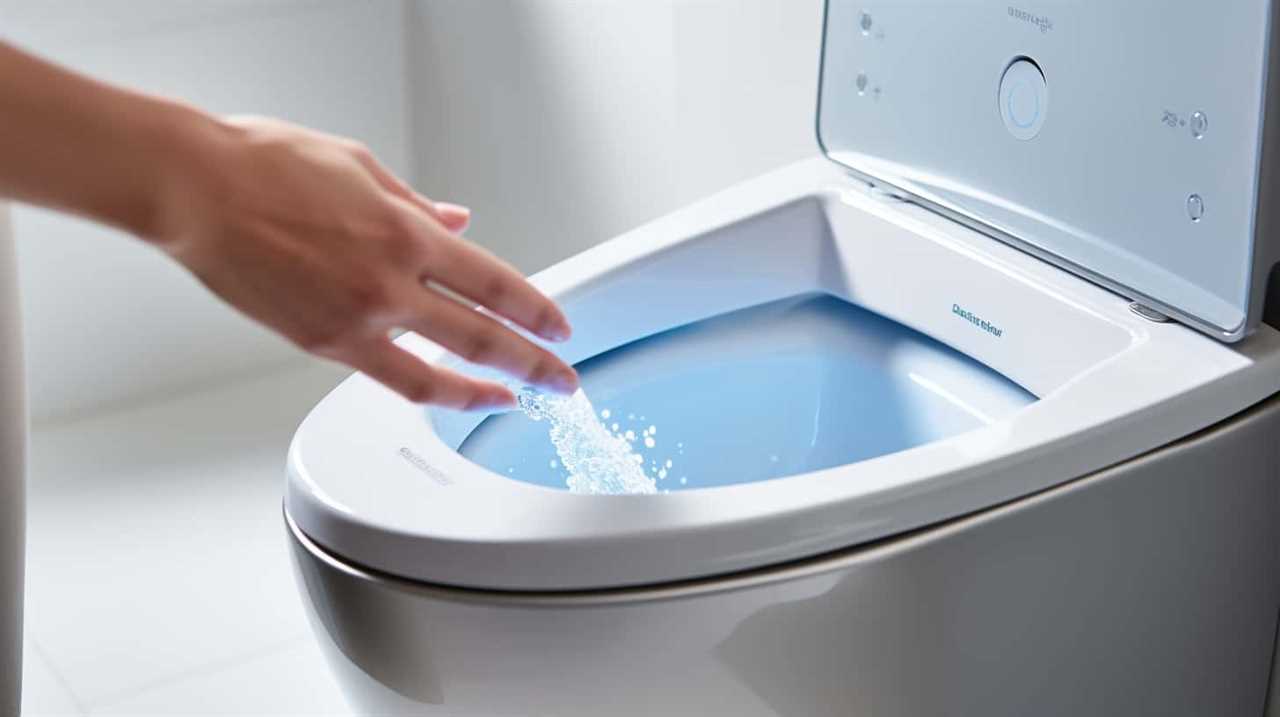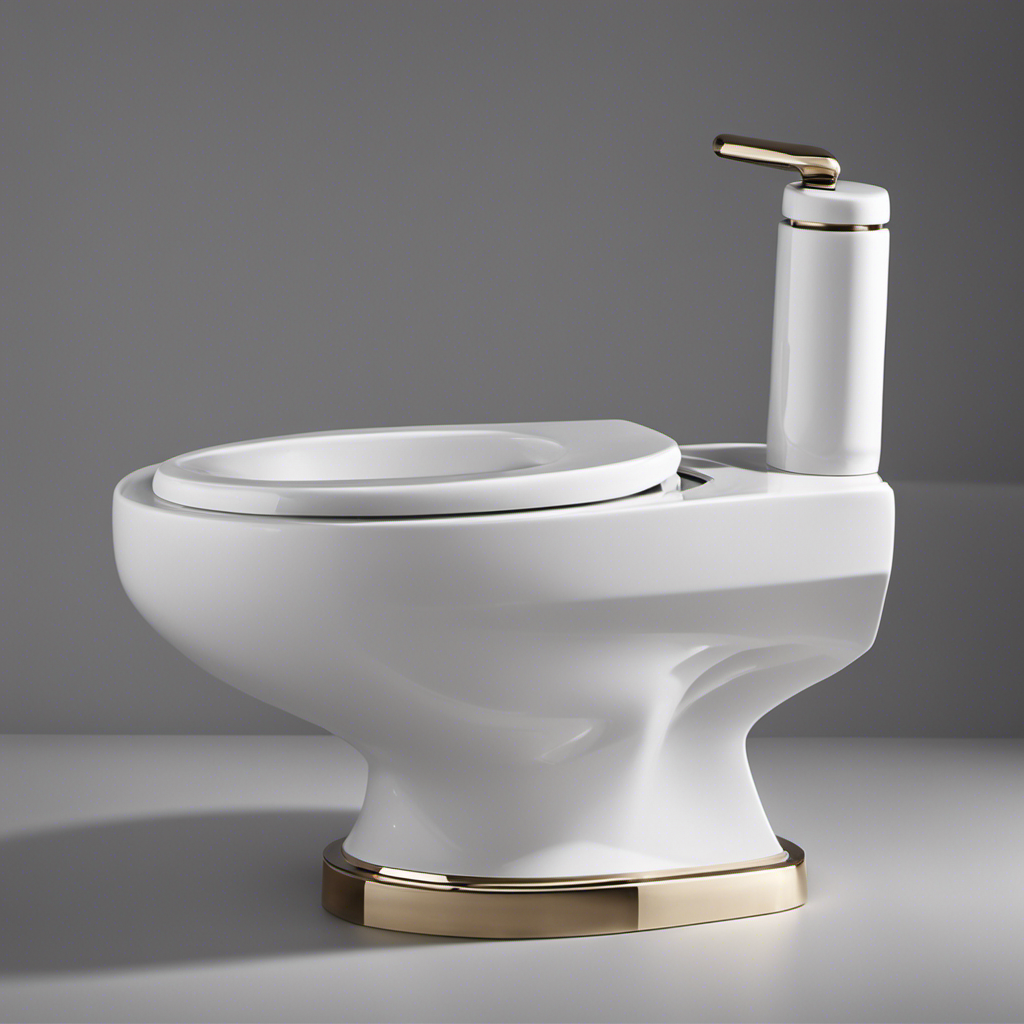Can anything really be flushed down the toilet? We’ve all wondered about the mysterious fate of our discarded items, from personal hygiene products to medications and chemicals.
In this article, we delve into the depths of the porcelain throne to uncover the truth. Prepare to be amazed by the unusual discoveries and learn about the environmental impact of our flushing habits.
Join us on this journey of toilet enlightenment, where no question is too absurd and curiosity reigns supreme.
Key Takeaways
- Flushing improper items down the toilet can lead to clogged pipes, sewer backups, and damage to wastewater treatment systems.
- It is important to avoid flushing wet wipes, feminine hygiene products, dental floss, cotton balls, condoms, and food waste.
- Flushing improper items can pollute water bodies, harm aquatic life, and increase the risk of waterborne diseases.
- It is recommended to only flush toilet paper, human waste, and water, and to properly dispose of other items in trash cans or through recycling and composting.
Common Household Items
In our homes, we often come across common household items that should never be flushed down the toilet. It’s crucial to understand the proper disposal methods to maintain the functionality of our plumbing systems.
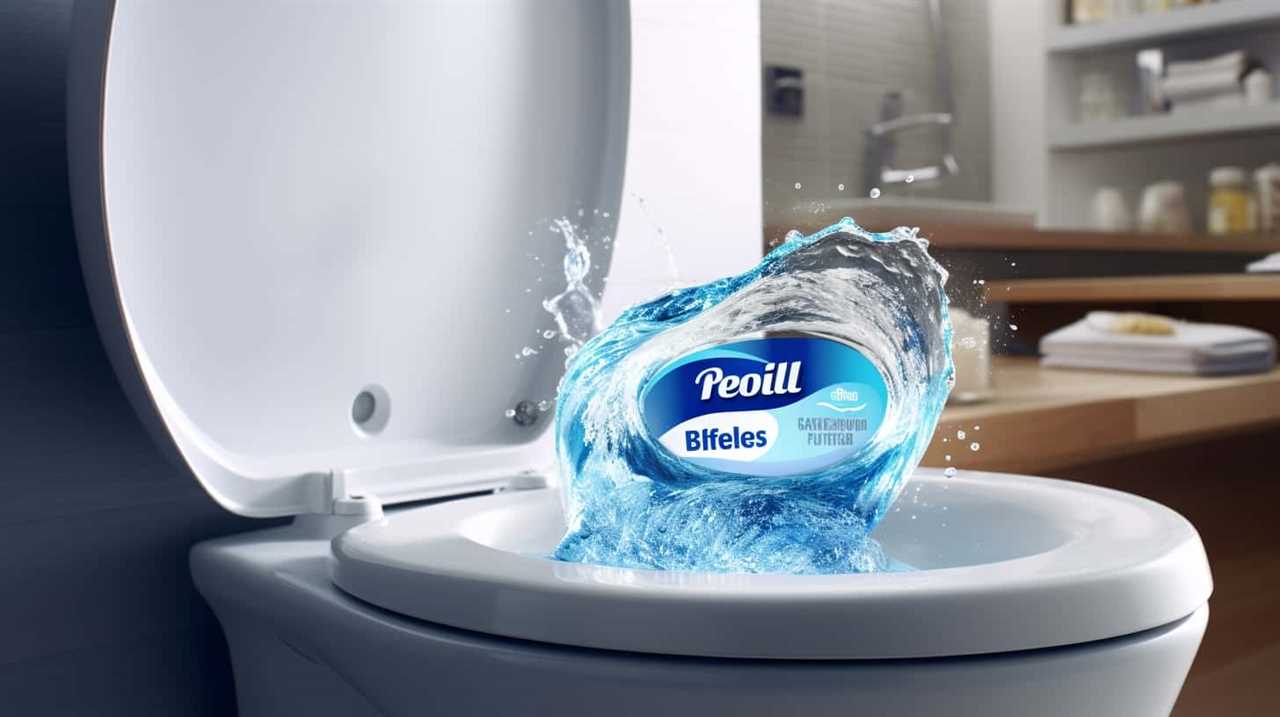
When it comes to food waste disposal, it’s important to remember that toilets aren’t designed to handle large amounts of food scraps. Leftover food, such as bones, coffee grounds, and fruit peels, should be disposed of in the trash or composted. Flushing these items can lead to clogged pipes and sewage backups, causing expensive repairs and potential health hazards.
To ensure plumbing system maintenance, it’s essential to educate ourselves and our families on proper waste disposal practices. By following these guidelines, we can prevent unnecessary damage and keep our toilets and plumbing systems in optimal condition.
Personal Hygiene Products
When it comes to personal hygiene products, we should never flush them down the toilet. While it may seem convenient, it can lead to serious plumbing issues and damage to our septic tank.
Here are three reasons why flushing personal hygiene products is a bad idea:
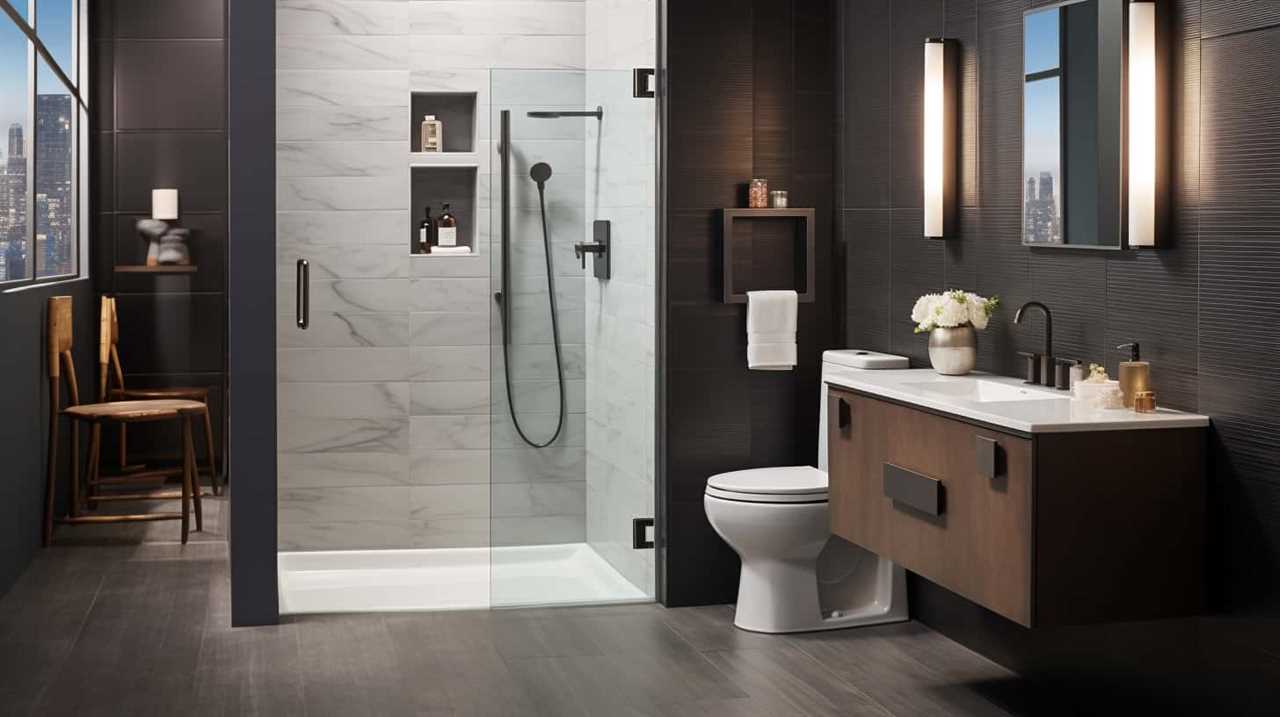
- Clogging: Personal hygiene products like wet wipes, tampons, and sanitary pads aren’t designed to break down in water. Flushing them can cause blockages in the pipes, leading to clogged toilets and drains.
- Septic Tank Problems: Flushing personal hygiene products can overwhelm the septic tank with non-biodegradable materials. This can disrupt the natural decomposition process, leading to a buildup of waste and potential system failure.
- Environmental Impact: When flushed, these products can end up in our rivers and oceans, causing pollution and harm to marine life.
To avoid expensive plumbing repairs and environmental damage, it’s essential to dispose of personal hygiene products properly by using dedicated waste bins.
Medications and Chemicals
We should never flush medications and chemicals down the toilet. Proper disposal methods for medications and chemicals are essential to prevent potential risks to both human health and the environment.
When medications are flushed, they can end up in water bodies, where they may contaminate drinking water sources and harm aquatic organisms. Similarly, chemicals can have detrimental effects on the environment if not disposed of correctly.
To ensure safe disposal, it’s recommended to take unused or expired medications to a drug take-back program or dispose of them in secure medication disposal containers. Chemicals should be disposed of through designated hazardous waste collection programs or facilities.

By following these disposal methods, we can minimize the potential risks associated with flushing medications and chemicals down the toilet.
Now, let’s move on to the next section and explore some unusual discoveries related to what people have tried to flush down the toilet.
Unusual Discoveries
Moving on from the previous subtopic, let’s delve into some surprising and bizarre objects that have made their way into toilets.
It’s astounding to see what people have decided to flush down the drain. Here are some weird finds and historical artifacts that have been discovered in toilets:
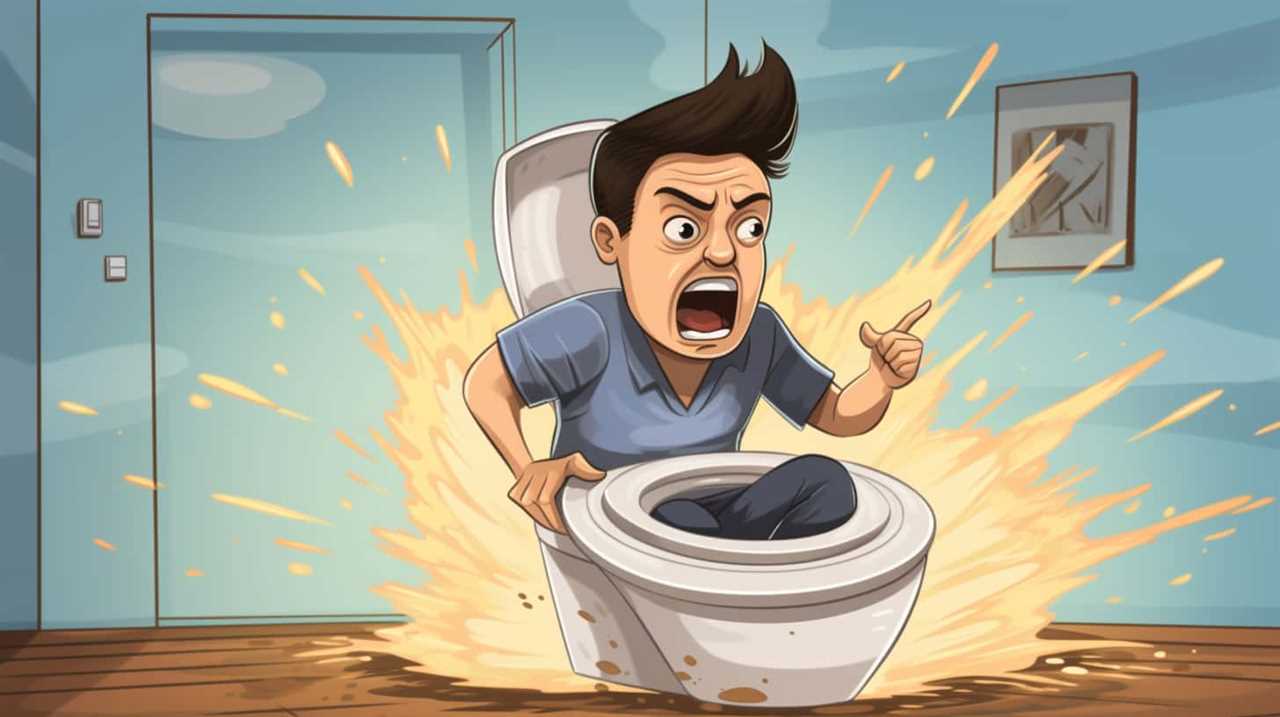
- Ancient coins and jewelry: Throughout history, people have accidentally dropped valuable items into toilets, sometimes resulting in valuable archaeological discoveries.
- Artifacts from the past: From Roman pottery to medieval tools, toilets have occasionally served as accidental time capsules, providing glimpses into different eras.
- Unusual animal remains: Occasionally, toilets have been the final resting place for odd animal remains, including small reptiles, rodents, and even fish.
These unusual discoveries highlight the unpredictable nature of what can end up in our toilets. It’s a reminder that even a seemingly mundane object can have a fascinating story behind it.
Environmental Impact
The environmental impact of flushing various items down the toilet is a significant concern. Improper disposal of waste can lead to water pollution and have detrimental effects on ecosystems. It is crucial to understand proper waste management practices to mitigate these risks.
To illustrate the potential environmental impact, let’s examine a table showing some common items flushed down the toilet and their consequences:
| Item | Environmental Impact |
|---|---|
| Wet wipes | Can clog pipes and cause sewage backups |
| Medications | Contaminate water sources and harm aquatic organisms |
| Plastic bags | Contribute to plastic pollution and harm marine life |
| Cotton swabs | Can cause blockages and damage sewage treatment systems |
| Food waste | Increases nutrient levels in water bodies, leading to eutrophication |
Frequently Asked Questions
Are There Any Exceptions to the Common Household Items That Can Be Flushed Down the Toilet?
There are exceptions to what can be flushed down the toilet. Alternatives to flushing personal hygiene products, such as diapers and tampons, should be disposed of properly to avoid clogging and damaging sewage systems.
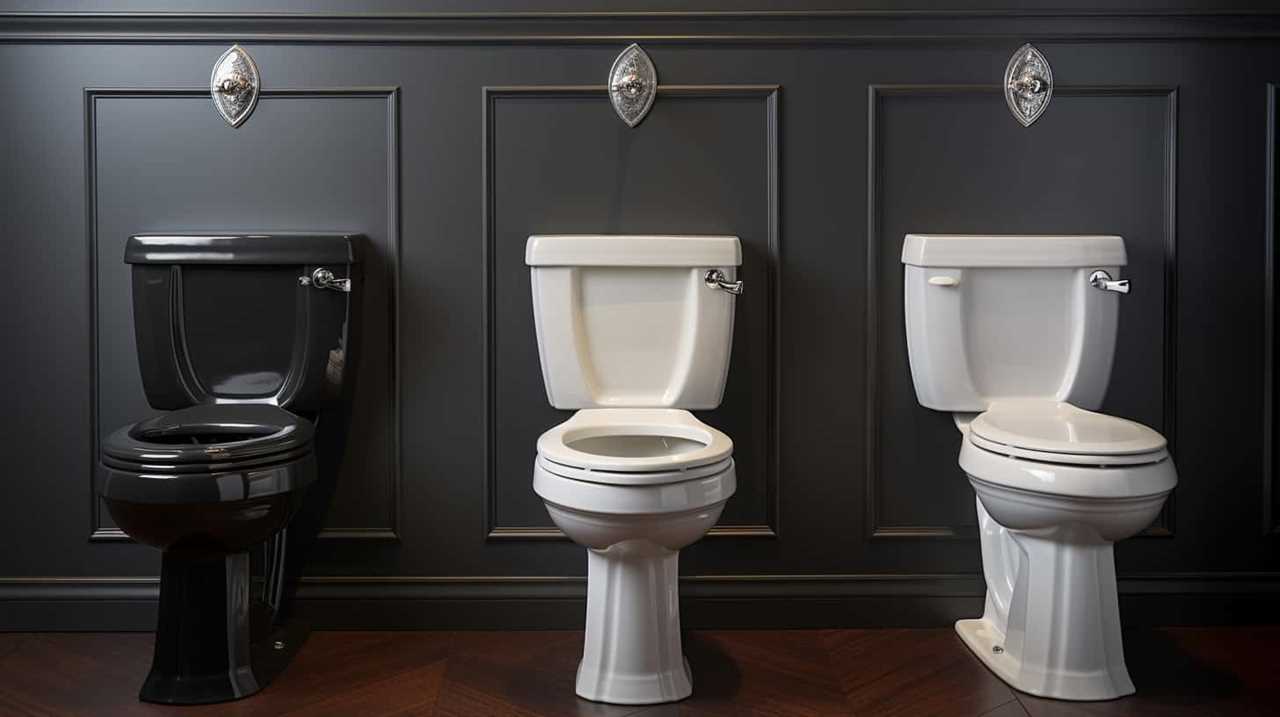
Can Personal Hygiene Products Be Safely Disposed of in the Toilet?
Yes, personal hygiene products should not be flushed down the toilet. They can cause clogs in the plumbing system and have a detrimental environmental impact. Proper disposal methods should be followed instead.
What Should I Do With Expired Medications or Chemicals Instead of Flushing Them Down the Toilet?
Proper disposal of expired medications and chemicals is crucial. There are alternative disposal methods such as taking them to designated drop-off locations or participating in community drug take-back programs.
Can You Provide Some Examples of Unusual Discoveries Made in Toilets?
Can unusual treasures and historical artifacts be found in toilets? Some surprising discoveries have been made, showcasing the unpredictable nature of human behavior. Let’s explore the fascinating world of toilet findings.
How Does Flushing Certain Items Down the Toilet Impact the Environment and Our Water Systems?
Flushing certain items down the toilet can have a significant impact on the environment and our water systems. It can overload wastewater treatment plants and contribute to water pollution. To reduce this impact, we can find ways to reduce water consumption in toilets.

Conclusion
In conclusion, it’s important to remember that not everything can be flushed down the toilet. While common household items like toilet paper and bodily waste are designed to be disposed of in this manner, personal hygiene products, medications, and chemicals should never be flushed.
The discovery of unusual items in the sewage system serves as a reminder of the potential environmental impact caused by improper disposal. Therefore, it’s essential to be mindful of what we flush to ensure the proper functioning and preservation of our sewer systems.

